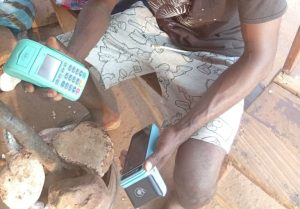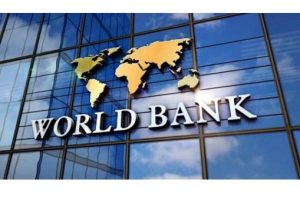
How PoS merchants make at least N2.654bn each time Nigerians withdraw N5,000
Across the country, Nigerians are gradually adapting to making virtual payments for goods and services while moving away from a cash-dependent economy. Still, this shift is coming at a cost — at least N2.654 billion.
Read More
Comment
0

NSA Ribadu’s official Hilux stolen during Abuja Juma’at prayers
The Command said it had intensified efforts to track down the fleeing suspects and recover the stolen Hilux.
Read More
Comment
0

Kwara: Masquerades protest ‘outrageous’ electricity bills
Some of the inscriptions on the placards read, ‘Omu-Aran Says No to Band A’, ‘Bring Us Back to Band C’, ‘Revert Omu-Aran to Band C ’, and ‘Omu-Aran Youths Have Spoken Loudly’.
Read More
Comment
0

Trump backtracks on tech tariffs, surrenders to industry leaders
Trump has reversed his decision to impose massive tariffs on tech companies, admitting the move would harm consumers and U.S. businesses.
Read More
Comment
0

Ogun shuts Olumo rock
Ogun State Government announces the temporary closure of Olumo Rock starting April 14 for renovations aimed at improving tourism and preserving cultural heritage.
Read More
Comment
0

Pastor Tobi Adegboyega denies using AI to fake luxury lifestyle amid allegations
Pastor Tobi Adegboyega says AI claims about his luxury lifestyle are “baseless,” calling the accusations a smear campaign.
Read More
Comment
0

Manchester Arena bomber attacks prison guards with knife and hot oil
Manchester Arena bomber Hashem Abedi allegedly stabbed and burned three guards in a violent prison attack.
Read More
Comment
0

Eddie Howe hospitalized, to miss Newcastle vs Man United showdown
Newcastle United confirm manager Eddie Howe is in hospital and will miss tonight’s game against Manchester United due to illness.
Read More
Comment
0

World Bank commits $16bn investment portfolio to Nigeria’s development
The World Bank has committed $16 billion in support of Nigeria’s development across health, education, and infrastructure sectors.
Read More
Comment
0

What Trump’s military border ‘buffer zone’ order means for future migrant crossings
Trump says he’ll use the military to create a “buffer zone” at the southern border to stop illegal crossings if re-elected.
Read More
Comment
0
 Hot
Hot